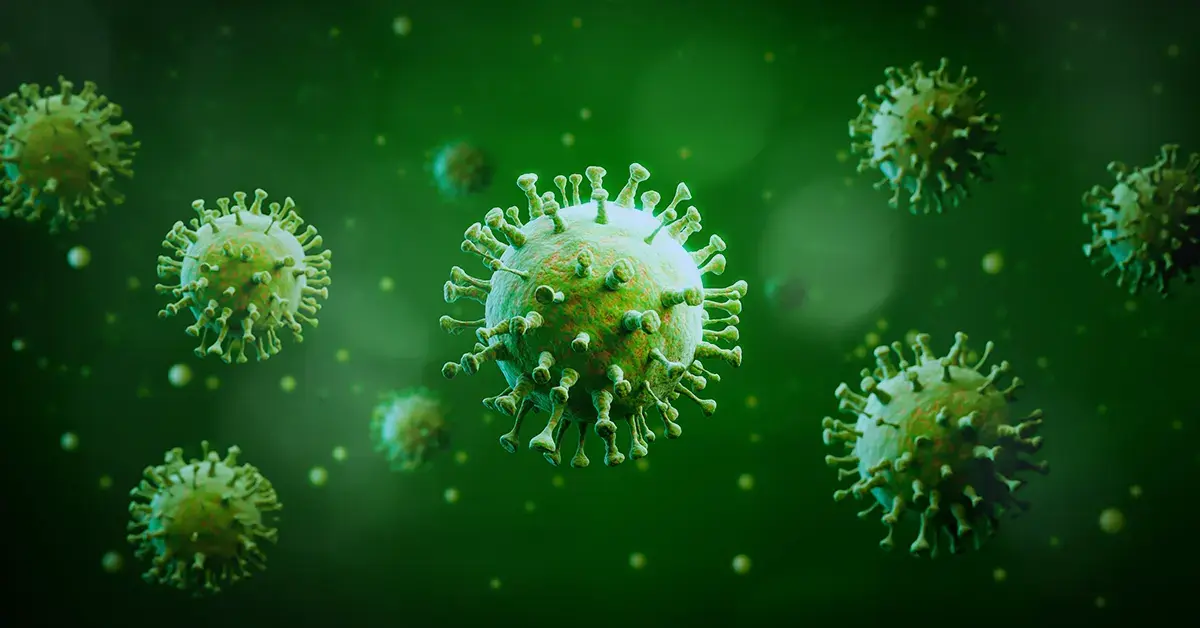Infectious diseases are illnesses caused by tiny organisms like bacteria, viruses, fungi, or parasites that invade the body and can be spread from person to person, or through contact with contaminated surfaces, water, or food. In a medical department specializing in infectious diseases, the focus is on understanding, diagnosing, treating, and preventing these illnesses to protect public health.
What are Infectious Diseases?
Infectious diseases are conditions that occur when harmful microorganisms enter the body. These microorganisms, sometimes called pathogens, include bacteria (such as those causing tuberculosis), viruses (like the flu or COVID-19), fungi (which can cause infections like athlete’s foot), and parasites (which can lead to illnesses such as malaria). Once inside the body, they multiply and trigger symptoms of illness.
While many infectious diseases are minor and resolve on their own, others can be severe and even life-threatening. Infectious diseases can spread quickly, especially in crowded areas, making them a significant concern for hospitals and health professionals. This is where a medical department focused on infectious diseases becomes critical.
The Role of the Infectious Diseases Department
The medical department specializing in infectious diseases plays a key role in diagnosing and treating people who are affected by infections. These departments are often found in large hospitals and serve as a hub for managing outbreaks, handling difficult cases, and providing expert care. Here are the key functions of an infectious diseases department:
- Diagnosis: One of the primary responsibilities of this department is diagnosing infections. Doctors, nurses, and specialists use tests, such as blood tests, imaging, or cultures, to identify the pathogen causing the illness. Since many infections have similar symptoms, accurate diagnosis is crucial to ensure the correct treatment is given.
- Treatment : Once a diagnosis is made, the department focuses on treating the infection. Treatment options differ according to the type of infection. Bacterial infections are usually treated with antibiotics, while antiviral medications may be used for viruses. Some infections, like those caused by fungi or parasites, require specialized drugs. The department’s medical professionals are experts in selecting the right treatment for each case.
- Prevention and Control : Preventing the spread of infectious diseases is another key role of the department. Doctors and health workers educate patients and the public on preventive measures, such as vaccines, proper hygiene, and safe food practices. During outbreaks, such as COVID-19, these departments also work on isolating affected individuals to contain the spread of the disease.
- Research: Infectious disease departments are also centers for research. They study how new diseases emerge, how current diseases spread, and how treatments can be improved. This research is vital, especially when new threats, like COVID-19, appear. Departments often collaborate with global health organizations to keep updated with the latest findings and treatment options.
Common Infectious Diseases Treated
Infectious disease departments handle a wide range of illnesses. Some of the most common include:
- Influenza (Flu)
This highly contagious viral infection affects the respiratory system and spreads through droplets when an infected person coughs or sneezes. Vaccination is a key preventive measure. - Tuberculosis (TB)
Caused by bacteria, TB primarily affects the lungs but can also impact other parts of the body. It spreads through the air and requires a long-term course of antibiotics for treatment. - HIV/AIDS
HIV affects the immune system, making the body less capable of resisting against diseases. Without treatment, it can lead to AIDS. There is no cure, but antiviral treatments can control the virus. - Malaria
A parasitic infection transmitted through mosquito bites, malaria is common in tropical regions. To prevent mosquito bites, avoid them and use preventive medication. Malaria is deadly if not treated immediately. - COVID-19
COVID-19, caused by the coronavirus, spread rapidly worldwide, resulting in a global pandemic. The infectious diseases department played a crucial role in controlling and treating this disease through isolation, treatment, and vaccination programs.
The Importance of Vaccines
Vaccines are one of the most effective tools in preventing infectious diseases. They work by training the immune system to recognize and fight specific pathogens before they cause illness. Medical departments specializing in infectious diseases are strong advocates for vaccination. Vaccines have helped nearly eliminate diseases like polio and measles in many parts of the world. However, continuous efforts are needed to ensure everyone has access to these life-saving vaccines.
The Future of Infectious Diseases Departments
Infectious diseases will always be a part of human life, but with the right medical care and preventive measures, their impact can be controlled. In the battle against diseases, infectious disease departments are leading the way. They work around the clock to identify new threats, develop treatments, and educate the public on how to protect themselves. As science and medicine advance, these departments will continue to play an essential role in keeping communities safe.
In conclusion, the infectious diseases medical department is a vital part of modern healthcare. Their work extends far beyond treating infections—they are crucial in preventing the spread of disease, educating the public, and researching new treatments. By focusing on both immediate care and long-term prevention, these departments safeguard the health of individuals and communities alike.
